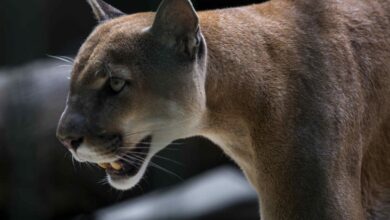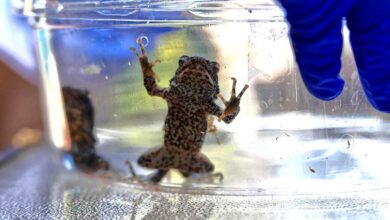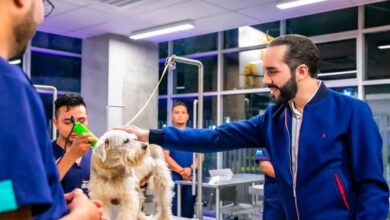Why Do Dogs Fear Fireworks? Understanding Canine Anxiety
Fireworks displays are a joy and celebration for humans, lighting up the night sky with dazzling colors and thunderous booms. However, these festive displays can be a source of intense fear and anxiety for the canine companions.

Jessica Ellen
Escucha este artículo
If your dog is scared of fireworks benadryl can be a helpful tool to calm anxious dogs. However, it's essential to use it under the guidance of a veterinarian, as the dosage should be carefully tailored to your dog's specific needs. Beyond medication, you can explore various other strategies and techniques to support your furry friend during fireworks displays. If you've ever wondered why your furry friend cowers, trembles, or tries to hide during fireworks, this article aims to shed light on the underlying reasons behind their fear.
1. Acute Hearing Sensitivity
Dogs have an extraordinary sense of hearing, far superior to humans. While we may find fireworks displays enjoyable, the loud, sudden noises can be overwhelming for our four-legged friends. Dogs can hear sounds as high as 65,000 Hz, while the upper limit for humans is only around 20,000 Hz. Fireworks produce deafening bangs and sharp whistles that are startling and physically painful for dogs. The noise can cause acute discomfort and distress, triggering their fear response.
2. Unpredictable Nature of Fireworks
Another reason dogs fear fireworks is the unpredictability of the explosions. Fireworks are sporadic and unpredictable, unlike other loud noises like thunderstorms or construction work. Dogs cannot anticipate the next explosion, leading to a constant state of anxiety during fireworks displays. This unpredictability can heighten their fear and make it difficult to relax.
3. Bright Lights and Vibrant Colors
It's not limited to the noise alone; the vivid lights and colorful fireworks explosions can add to their anxiety. Dogs have a keen sensitivity to alterations in their surroundings, and the abrupt bursts of light and vibrant hues against the night sky can be disorienting and frightening for them. This amalgamation of deafening noises and flashing lights often results in a sensory overload that can amplify their fear.
4. Fear of the Unknown
They are creatures of habit and routine, and they thrive on familiarity. Fireworks are often associated with special occasions or holidays, disrupting dogs' routines and environment. This disruption can lead to a fear of the unknown, as dogs struggle to understand the source of the loud noises and bright lights. Their instinct is to be cautious of anything that deviates from their daily routine.
5. Fearful Responses from Owners
Dogs are highly attuned to their owners' emotions and reactions. If a dog senses their owner is anxious or scared during a fireworks display, they are more likely to mirror those emotions. Unfortunately, this can exacerbate the dog's fear and anxiety. Dog owners need to remain calm and composed during fireworks displays to help reassure their furry companions.
6. Past Traumatic Experiences
Like humans, dogs can develop phobias based on past traumatic experiences. If a dog had a negative encounter with fireworks in the past, such as being too close to a loud display, they may carry that fear into future fireworks events. These past experiences can have a lasting impact on a dog's emotional response to fireworks.
The Benefits of Using Benadryl for Fireworks Anxiety in Dogs
It is often recommended for dogs scared of fireworks due to its antihistamine properties. While it's not a cure-all solution, it can help calm anxious dogs during stressful events like fireworks displays. If your dog is scared of fireworks, then Benadryl works by blocking histamine receptors in the body, which helps alleviate allergies and has a sedative effect. When given in the appropriate dosage and under the guidance of a veterinarian, It can help take the edge off your dog's anxiety, making the fireworks experience less traumatic. However, it's crucial to remember that it should only be used as part of a comprehensive plan to manage your dog's fear, and consulting with a vet is essential to ensure its safe and effective use.
Conclusion
Understanding why dogs fear fireworks is the first step toward helping them cope with this anxiety-inducing experience. While we may enjoy the dazzling displays, it's crucial to remember that our furry friends perceive these events very differently. To support your dog during fireworks displays, consider creating a safe and comfortable indoor space, using calming techniques such as soothing music or aromatherapy, and consulting with a veterinarian for additional guidance.
By acknowledging and addressing your dog's fear of fireworks, you can ensure they feel safe and secure during these noisy celebrations. Remember, a calm and compassionate approach can make all the difference in helping your canine companion overcome their anxiety and enjoy a happier, stress-free life.




